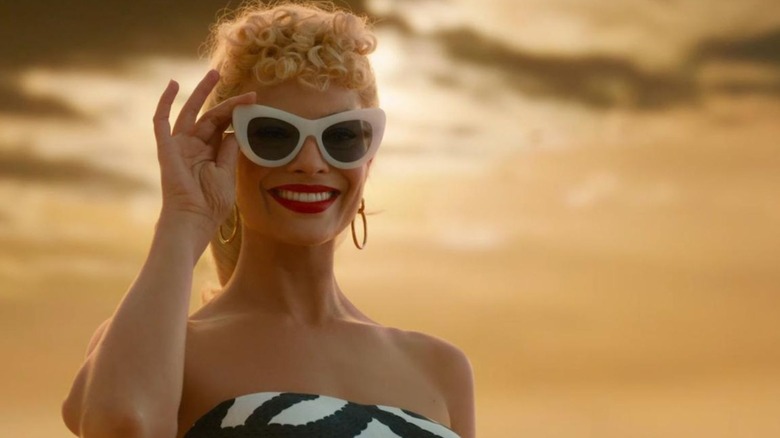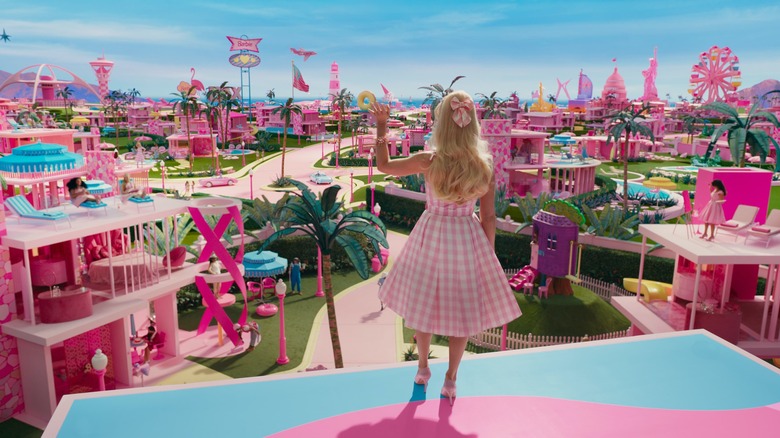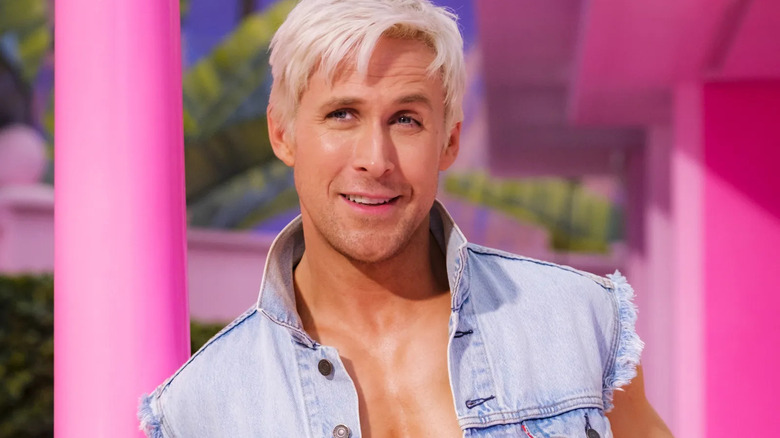Barbie Is A Spiritual Creation For Director Greta Gerwig
Barbie is larger than all of us combined. The doll, introduced by Mattel, Inc. in 1959, was one of the first adult-shaped dolls for children produced in the United States. Because the doll came with multiple hair colors and outfits, it quickly became evident that Barbie was mutable, changing like the tides. She could be anything or anyone. Barbie didn't have a personality because she had every personality. Her malleability has ensured her a near-permanent place in the pop culture firmament, and she has remained one of the best-selling toys in the world for 64 years.
Barbie hasn't been without controversy, of course. Her unrealistic body proportions were often cited by sociologists and psychologists as a primary source of body dysmorphia in young girls, and her fashion- and status-centered playsets seemingly encouraged shallow, materialistic thinking. Mattel responded to criticisms by merely diversifying further. Soon, Barbie was a woman of every race, size, profession, and background. She was shallow, deep, professional, and playful all at once. She really is everything.
Greta Gerwig's film "Barbie," due in theaters on July 21, 2023, is certainly not the first movie to feature the Barbie character — there have been 42 animated "Barbie" movies since 2001 — but it is the first live-action, big-budget studio film. Gerwig wanted to make sure she did the Barbie character justice and has seemingly created a broad, imaginary world of multiple Barbies and Kens who live in a toy-colored, plastic world. Margot Robbie plays the "central" Barbie. She also produced.
Indeed, according to a new interview with Vogue, Robbie recalls that Gerwig, in preparing to direct, began reaching into a deeply spiritual place to discover the depths of the character. Gerwig, it seems, wanted to position Barbie as a deity.
The Apostle's Creed
Gerwig wrote a "Barbie" treatment with filmmaker and co-screenwriter Noah Baumbach, her longtime romantic partner. According to Robbie, an initial part of the treatment involved a poem that the actress/producer described as "abstract." "And when I say 'abstract' I mean it was super abstract," she said. Gerwig wouldn't read the poem, but she compared it to the Apostle's Creed.
The Apostle's Creed, for those unfamiliar, is a brief affirmation of a Christian's beliefs. The poem itself likely came into being sometime in the fifth century but has long been a part of the modern Christian liturgy. Each sect of Christianity has a slightly different version, so there is no "correct" translation, but many begin with a version of "I believe in God, the Father Almighty, maker of heaven and earth." Gerwig, it seems, was either affirming her belief in Barbie or was writing an affirmation of what Barbie herself might believe in. Either way, there was a larger, soul-touching version of Barbie in Gerwig's mind.
The Vogue article also points out a Biblical parallel with Barbie. It's notable that Barbie was invented in 1959, but her boyfriend Ken wasn't invented until 1960. In the film itself, narrator Helen Mirren points out that Barbie has a great day every day, but Ken only has a good day if Barbie looks at him. It would seem that Ken was begat of Barbie, created specifically to be her companion and worshiper. Gerwig draws a direct parallel — or perhaps a perpendicular — to the Book of Genesis. She said:
"Ken was invented after Barbie, to burnish Barbie's position in our eyes and in the world. That kind of creation myth is the opposite of the creation myth in Genesis."
The slumber party
Although not a liturgical event, Robbie also insisted on a piece of performance-enhancing secular liturgy to get her co-stars in the right mood to appear in a "Barbie" feature film; she hosted a slumber party. But a slumber party for just the Barbie actors. None of the Kens were invited (there are multiple versions of each in the film). Other Barbies will be played by Kate McKinnon, Issa Rae, Dua Lipa, Hari Nef, Alexandra Shipp, and several others. Ryan Gosling plays the "central" Ken, but Simu Liu, Ncuti Gatwa, and John Cena will play others, with Cena apparently also a mermaid.
According to the Vogue article, Kens were invited to say hello, but they weren't allowed to sleep over; it was a "girls-only" affair. Gosling, unable to attend either way, sent a singing telegram to his on-screen beloved.
The sleepover also kicked off a Sunday morning tradition on set. The cast and crew were invited to the Electric Cinema theater in London (where the bulk of filming took place), to watch a film that informed the tone and themes of Gerwig's movie. This ritual, according to Vogue, was nicknamed "movie church." Gerwig had her cast and crew essentially worship cinema on Sundays.
The story of the "Barbie" movie has not yet been made public, so one can only speculate if the film itself will contain any themes of God or spirituality. Given the broad nature of the central character, though, anything might be possible. Those wanting to hear the famed 1990s techno jam "Barbie Girl" by Aqua in the film will, however, be disappointed. There will, instead, be a cover of "Barbie Girl" by Canadian musician Alice Glass.


